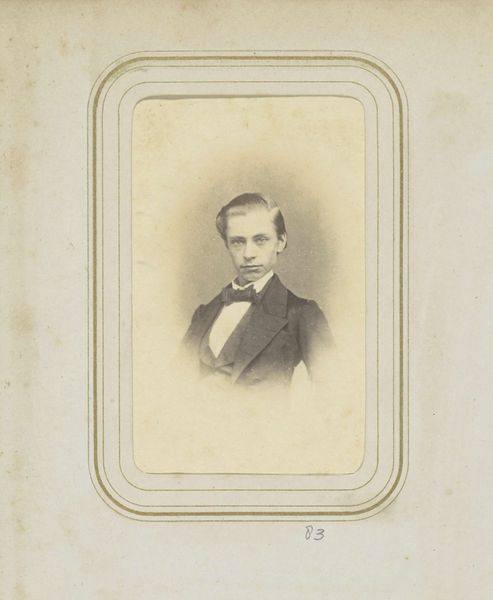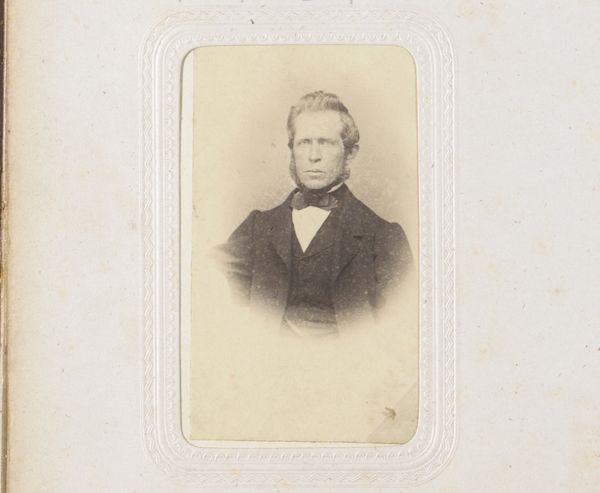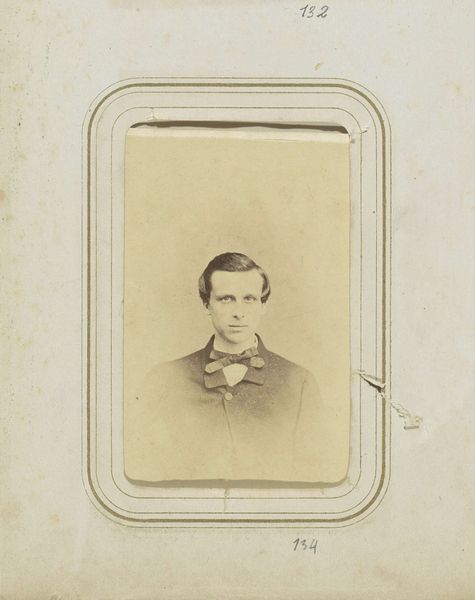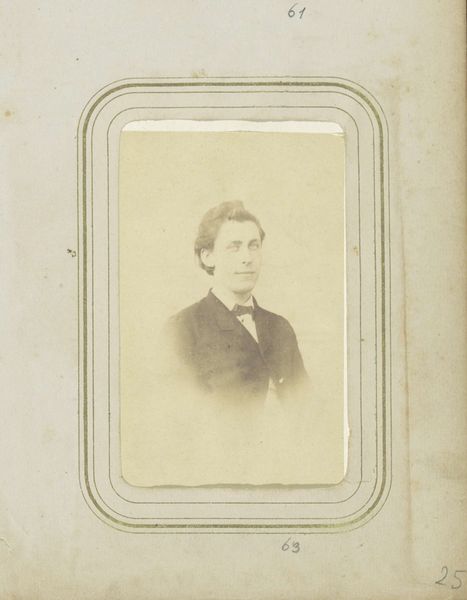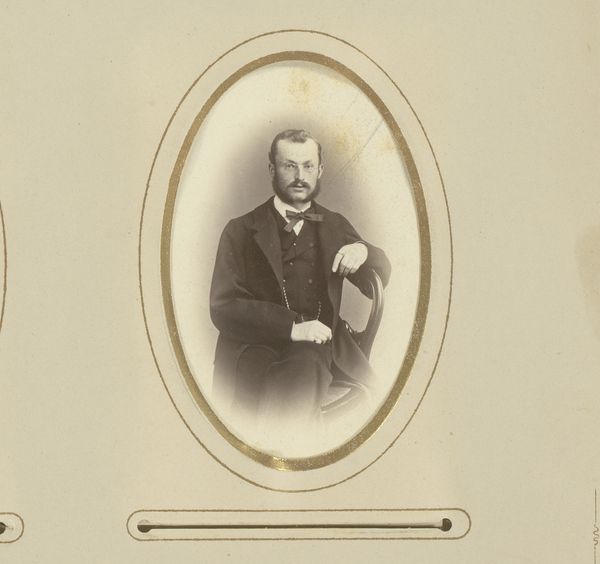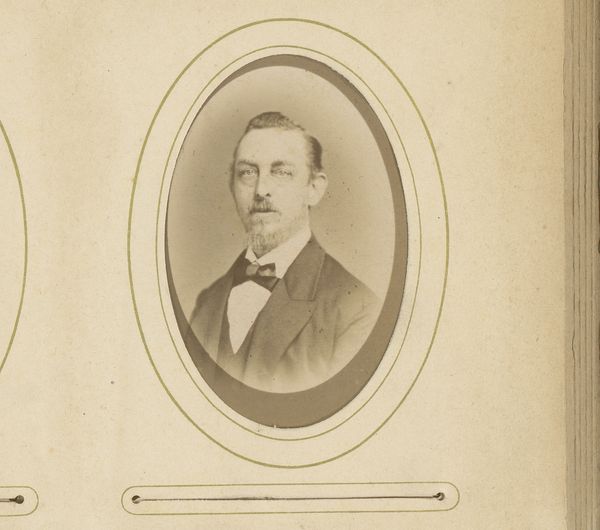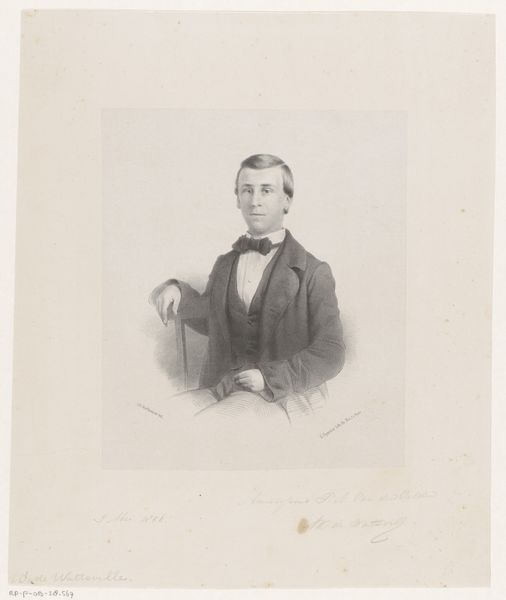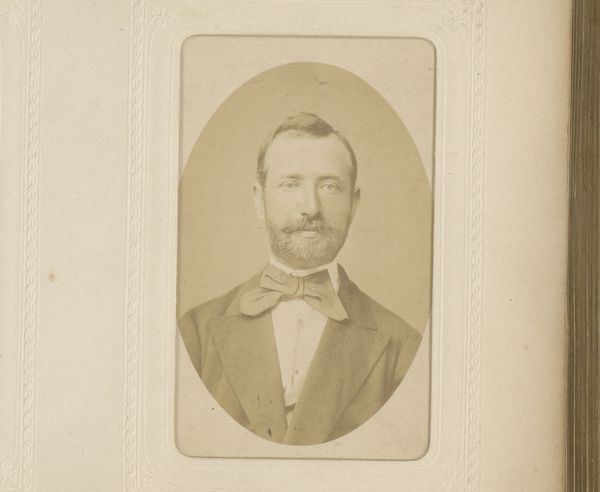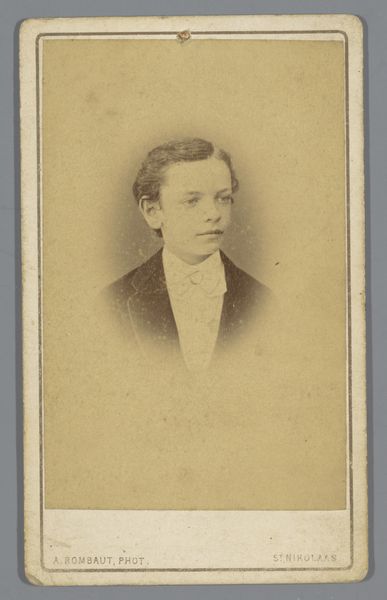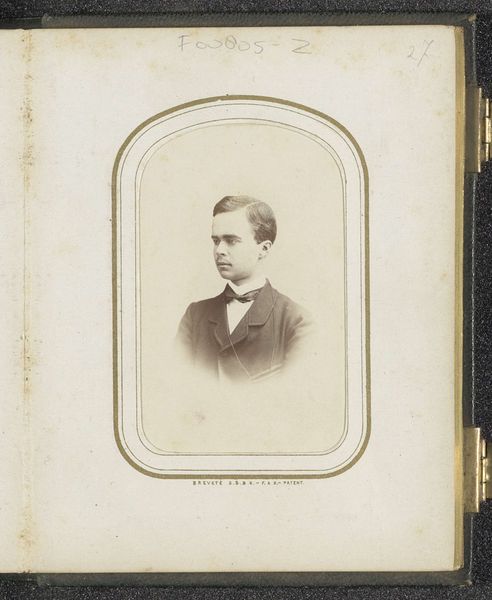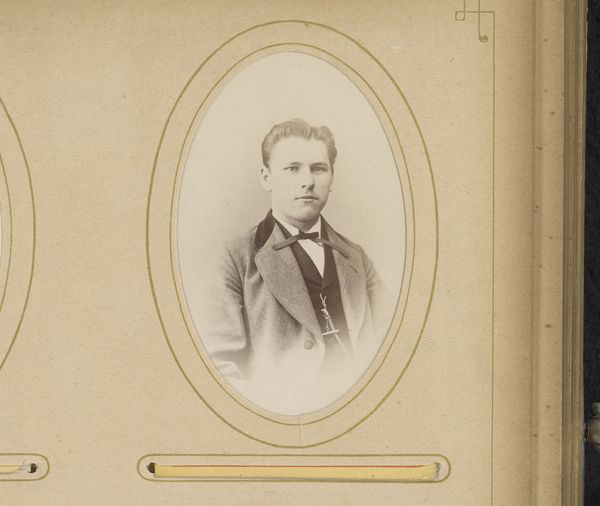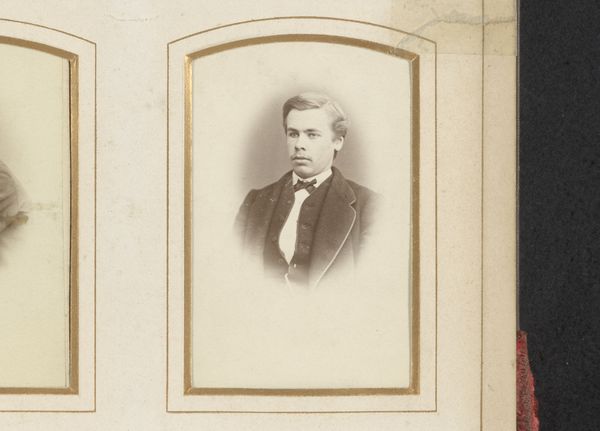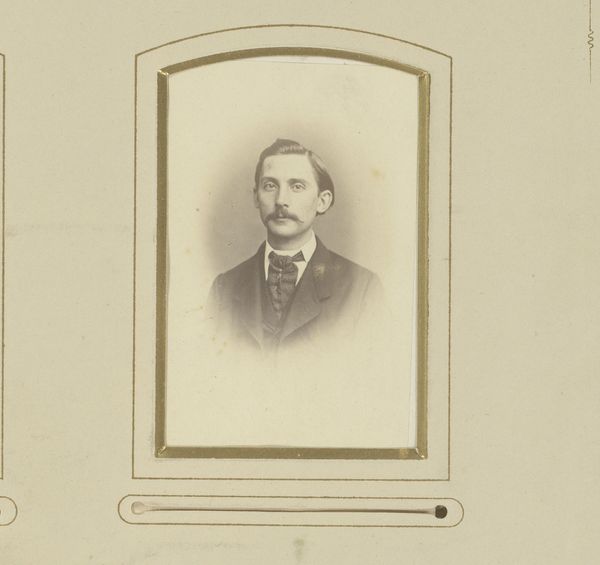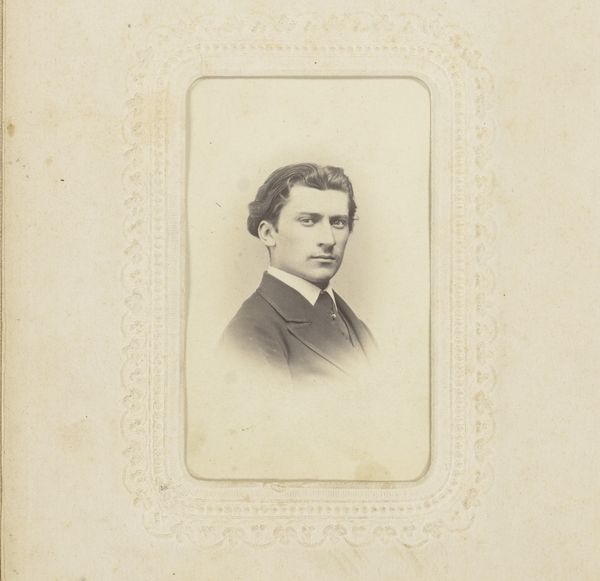
Dimensions: height 85 mm, width 53 mm
Copyright: Rijks Museum: Open Domain
This portrait of Abraham Lincoln was created by Émilien Desmaisons using the 19th-century photographic technique known as the carte-de-visite. The carte-de-visite, or visiting card in French, was a small paper photograph mounted on a thicker card. Introduced in the 1850s, this process allowed for mass production of photographs, making portraiture more accessible to a wider public. It’s worth remembering that before this, portraits were really only for the wealthy. The process involved using a special camera with multiple lenses to capture several images on a single glass plate negative, thereby reducing the cost of materials and labor. These were produced in vast quantities, and collecting them became a popular social practice. Consider how this democratization of image-making, through new technologies, made icons like Lincoln more intimately available to the average citizen. This speaks volumes about the social and political climate of the era, and the desire for connection with public figures. Understanding this context allows us to appreciate the full significance of this seemingly simple portrait.
Comments
No comments
Be the first to comment and join the conversation on the ultimate creative platform.
